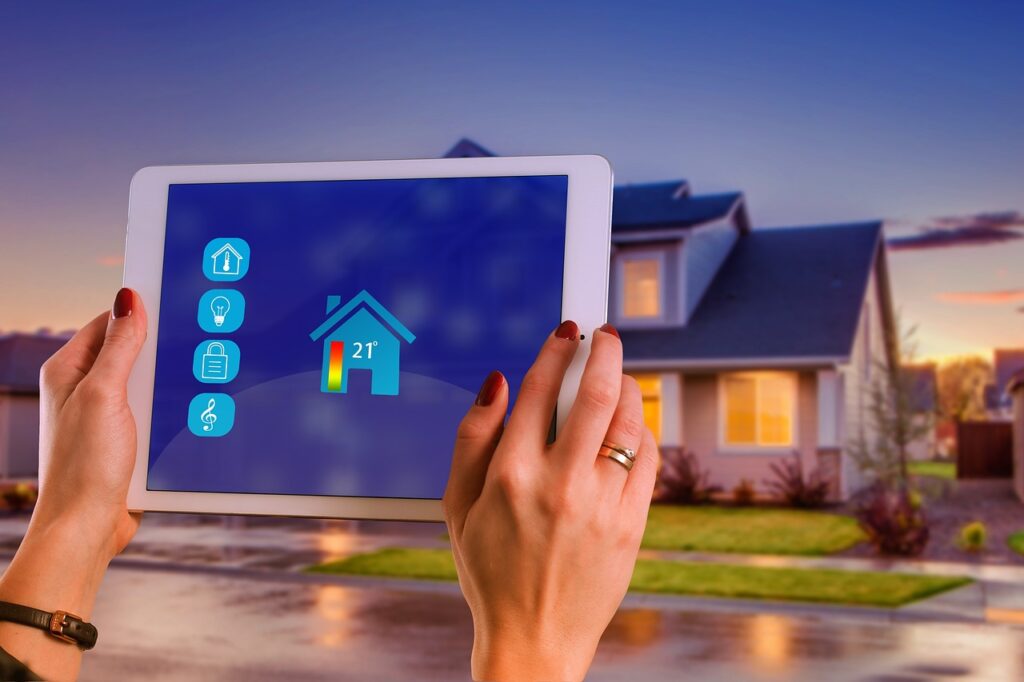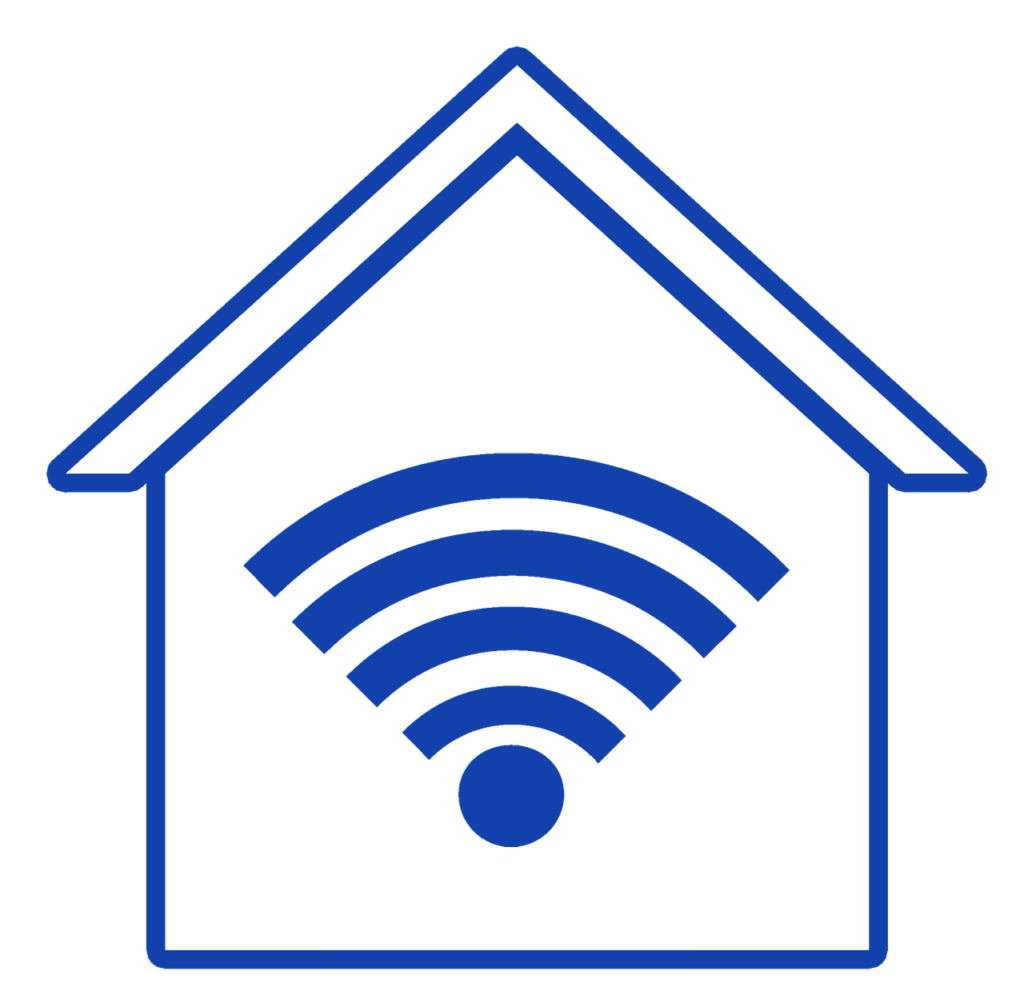Imagine having the ability to control every aspect of your home with just a tap on your smartphone or tablet. From turning on the lights to adjusting the temperature, a smart home system allows you to effortlessly manage your living space from anywhere in the world. This revolutionary concept is made possible by internet-connected devices and appliances that are part of the Internet of Things (IoT). With the integration of artificial intelligence, smart home systems not only offer convenience and energy efficiency, but also enhance security and personalize experiences. However, challenges in terms of interoperability still exist in the industry. Despite this, efforts are being made to standardize connectivity and setup, making the smart home experience even more seamless and accessible for everyone.
Convenience Benefits
Remote Control
Having a smart home means you have the power to control your devices and appliances from anywhere, at any time. Imagine being able to turn off the air conditioning or adjust the thermostat temperature while lying in bed or even when you’re away from home. With remote control capabilities, you can easily manage your home’s environment to your liking, all through a smartphone or tablet. No more getting up to manually switch off lights, turn on the TV, or adjust the temperature. The convenience of remote control is truly life-changing.
Voice Control
Speaking of convenience, how about controlling everything in your home with just your voice? Smart home devices now have the ability to integrate with popular voice assistants like Amazon Alexa, Google Assistant, and Apple Siri. This means you can simply speak commands and have your devices respond accordingly. Whether it’s dimming the lights, playing your favorite music, or even ordering groceries, voice control takes convenience to a whole new level. Just imagine how freeing it would feel to have your own personal assistant at your beck and call, all without lifting a finger.
Automation
One of the greatest benefits of a smart home is automation. With the ability to set schedules and routines, you can customize your home to operate seamlessly and efficiently. You can program your lights to turn on and off at specific times, have your coffee maker start brewing as soon as you wake up, or even have your curtains open automatically in the morning. Automation removes the need for manual adjustments and ensures that your home is always at its optimal state according to your preferences. It’s like having a personal concierge that takes care of everything for you.
Energy Efficiency
Smart home devices are not only convenient but also energy-efficient. By integrating energy monitoring capabilities into your home, you can have a better understanding of your energy usage and make conscious choices to reduce consumption. Remote energy monitoring allows you to track and manage the energy consumption of individual devices, giving you full control over your energy usage. In addition, smart thermostats can learn your heating and cooling patterns, adjusting the temperature accordingly to minimize energy wastage. With smart lighting systems, you can also set schedules and occupancy sensors to ensure that lights are only on when needed. By optimizing energy consumption, smart homes contribute to a more sustainable future.
Safety Benefits
Surveillance
One of the key safety benefits of a smart home is the ability to monitor your home remotely. With smart cameras installed, you can keep an eye on your property from anywhere, giving you peace of mind when you’re away. Whether you want to check in on your pets, monitor deliveries, or simply ensure the security of your home, surveillance cameras offer an extra layer of protection. With motion detection and real-time alerts, you’ll be notified of any suspicious activity, allowing you to take immediate action. Thanks to surveillance technology, you can have complete control over your home’s security at all times.
Smart Locks
Say goodbye to traditional keys and welcome the convenience and security of smart locks. Smart locks allow you to lock and unlock your doors remotely, eliminating the need for physical keys. This means you can grant access to family members, friends, or even service providers, all without having to be physically present. With smart lock technology, you can also receive notifications when someone enters or leaves your home, giving you complete visibility and control. No more worrying about lost keys or unauthorized access. Smart locks provide a seamless and secure way to protect your home and loved ones.
Fire and Carbon Monoxide Detection
Safety should always be a top priority in any home, and smart technology can significantly enhance your home’s safety measures. Smart fire and carbon monoxide detectors are designed to detect potential threats and immediately alert you. Whether it’s smoke, high levels of carbon monoxide, or even a small fire, these detectors will sound an alarm and send notifications to your smartphone. This ensures that you are aware of any dangers and can take immediate action, even if you’re not at home. Smart fire and carbon monoxide detection systems bring peace of mind by providing an extra layer of safety and protection.
Emergency Alerts
In times of emergency, every second counts. Smart home systems are equipped to detect emergencies and efficiently alert you to ensure your safety. Whether it’s a break-in, a fire, or a medical emergency, the system can notify you instantly through notifications, phone calls, or even SMS messages. These alerts can be sent to multiple devices and even emergency services, empowering you to take action and get help as quickly as possible. In critical situations, having an intelligent and responsive system that can rapidly communicate with you is invaluable. Smart home technology makes emergency preparedness easier and more effective.

Energy Efficiency Benefits
Remote Energy Monitoring
Energy consumption is often a significant concern for homeowners, and smart homes offer a practical solution to address this issue. With remote energy monitoring, you gain real-time insights into your energy usage. By monitoring individual devices’ energy consumption, you can identify energy-hungry appliances and make informed decisions on how to reduce your energy footprint. With this knowledge, you can be more conscious of your energy usage and take steps to optimize it. Remote energy monitoring empowers you to be proactive in managing your energy consumption, helping to lower your utility bills while also benefiting the environment.
Smart Thermostats
Heating and cooling can account for a significant portion of your energy expenses. Smart thermostats address this issue by allowing you to have precise control over your home’s temperature settings. These devices learn your patterns and preferences, automatically adjusting the temperature to maximize comfort while minimizing energy wastage. You can also control your thermostat remotely, ensuring that you never come home to a chilly or sweltering environment. By optimizing heating and cooling, smart thermostats can help reduce energy consumption without compromising comfort. They are a valuable addition to any energy-efficient smart home.
Smart Lighting
Smart lighting systems are not only convenient but also energy-efficient. With the ability to control your lights remotely and set schedules, you can ensure that lights are only on when needed, minimizing unnecessary energy usage. Motion sensors and occupancy detection can also be integrated into the system, automatically turning lights off when no one is in a room or area. Furthermore, dimming capabilities allow you to adjust the brightness according to your preference, saving even more energy. By adopting smart lighting, you can create an efficient and sustainable home while enjoying the convenience of lighting control.
Accessibility Benefits
Assistive Technology
Smart home technology is a game-changer for individuals with disabilities or limited mobility. Assistive devices, such as voice assistants and specialized controllers, enable users to interact with their homes effortlessly. Voice commands can be used to control various devices, from turning on lights to adjusting the temperature. Smart home systems can also integrate with other assistive technologies, such as automated door openers or wheelchair ramps, to further enhance accessibility. For individuals who face physical limitations, smart homes provide a newfound level of independence and freedom.
Remote Monitoring
Smart home systems allow for remote monitoring, making it easier to check on loved ones who may require extra care or assistance. Whether it’s an elderly family member living alone or a child staying home from school, you can remotely monitor their well-being and ensure their safety. With surveillance cameras, motion sensors, and smart door locks, you can receive real-time updates on any activity or entry into their living space. This provides peace of mind and allows you to respond promptly if any issues arise. Remote monitoring capabilities bring reassurance to those caring for others, even when they can’t be physically present.
Smart Appliances
Smart appliances offer significant benefits for individuals with accessibility needs. From washing machines to ovens, these appliances can be controlled remotely and even programmed to operate at specific times. This means individuals who may have difficulty maneuvering or adjusting traditional appliances can have full control and independence. For example, a person with limited mobility can start their laundry remotely or preheat the oven before they arrive in the kitchen. Smart appliances provide a level of convenience and accessibility that empowers individuals to lead more autonomous lives.

Enhanced Security Benefits
Smart Cameras
When it comes to home security, smart cameras are an essential component. These cameras allow for real-time surveillance and monitoring of your property, deterring potential intruders and providing evidence in the event of a break-in. With features such as night vision, motion detection, and two-way audio, smart cameras ensure that any suspicious activity is captured and recorded. Footage can be accessed remotely, offering peace of mind even when you’re away from home. The presence of smart cameras acts as a powerful deterrent and plays a vital role in safeguarding your home and belongings.
Smart Alarms
Smart alarms take home security to the next level by providing comprehensive coverage and instant notifications. These alarms are integrated with different sensors, including window and door sensors, motion detectors, and glass break sensors. In case of a breach, the alarm will sound, and you will receive immediate alerts on your smartphone or other connected devices. This allows you to take immediate action, whether it’s contacting authorities or checking the security cameras for visual confirmation. Smart alarms provide reliable and effective security measures, giving you peace of mind that your home is protected around the clock.
Access Control
Traditional keys can be lost, stolen, or duplicated, posing a security risk. Smart home systems offer access control solutions that eliminate these concerns. With smart locks, you can grant access to specific individuals, manage user permissions, and track entry logs. Whether it’s a family member, friend, or service provider, you have full control over who can enter your home and when. Access codes can also be easily changed or revoked, ensuring that only authorized individuals have access. Smart access control provides an added layer of security, giving you more control over who has access to your home.
Interoperability Challenges
Lack of Standardization
One of the challenges in the smart home industry is the lack of standardization. With a variety of manufacturers and devices on the market, achieving seamless integration and communication between different systems can be difficult. Incompatibility issues may arise, making it challenging to connect and control devices from different brands or using different wireless protocols. This lack of standardization can lead to frustration and inconvenience for homeowners who wish to create a cohesive and interconnected smart home ecosystem. However, efforts are being made to establish industry standards and protocols, bringing interoperability and ease of use to the forefront.
Connectivity Issues
A reliable internet connection is crucial for smart home devices to function properly. Connectivity issues, such as weak Wi-Fi signals or network outages, can disrupt the communication between devices and hinder their performance. This can result in delayed responses, unresponsive devices, or inconsistent automation. To mitigate connectivity issues, it is essential to have a strong and stable internet connection throughout your home. Additionally, choosing devices that support multiple wireless protocols, such as Wi-Fi, Bluetooth, Zigbee, or Z-Wave, can enhance connectivity options and offer more flexibility in creating a robust smart home network.
Complex Setup
Setting up a smart home system can be complex, especially for individuals who are not technologically inclined. The process often involves connecting devices, configuring settings, and ensuring compatibility. Each device may have its own setup process, instructions, and app or hub requirements. This complexity can be overwhelming for some homeowners, leading to frustration and potentially discouraging them from fully embracing smart home technology. Simplifying the setup process and providing clear and user-friendly instructions can help overcome this challenge. As the smart home industry continues to evolve, manufacturers are working towards making setup more intuitive and user-friendly to encourage wider adoption.

Integration of Artificial Intelligence
AI Algorithms
Artificial intelligence is revolutionizing smart home systems. AI algorithms enable devices to learn from user behavior, adapt to preferences, and make intelligent decisions. By analyzing data collected from various sensors and devices, AI algorithms can anticipate your needs and automatically adjust settings to enhance your lifestyle. For example, a smart thermostat can learn your temperature preferences throughout the day and automatically create a comfortable environment before you even think about adjusting it. AI algorithms bring a level of intelligence and automation that greatly enhance the convenience and efficiency of smart homes.
Personalized Experiences
With AI integration, smart homes can not only automate tasks but also provide personalized experiences. By learning your routines, preferences, and habits, AI-powered devices can predict and cater to your needs. Imagine waking up to your favorite song playing softly, curtains opening gradually to let in the morning light, and the coffee machine brewing your preferred blend, all customized based on your individual preferences. AI provides a level of personalization that transforms your smart home into an intelligent companion, ensuring that every interaction is tailored to your specific desires and making your life more enjoyable and effortless.
Optimized Energy Consumption
AI algorithms play a crucial role in optimizing energy consumption within a smart home. By continuously monitoring and analyzing energy usage patterns, AI-powered systems can identify opportunities to reduce waste and improve efficiency. AI can suggest behavior adjustments, such as setting energy-saving modes during periods of low activity or recommending optimal temperature settings to save electricity. Through machine learning and predictive analytics, AI algorithms become better at optimizing energy consumption over time, creating a more sustainable and energy-efficient home. By intelligently managing energy usage, AI integration contributes to a greener future.
Enhanced Security
Artificial intelligence significantly enhances the security features of smart home systems. Through advanced AI algorithms, devices can detect anomalies, unauthorized access attempts, and even potential threats. For example, AI-powered surveillance cameras can differentiate between regular activity and suspicious behavior, reducing false alarms and delivering more accurate notifications. AI can also analyze data from multiple sensors to detect patterns that may indicate unusual behavior, alerting homeowners to possible security risks. The integration of AI bolsters the security capabilities of smart homes and provides additional layers of protection for both you and your property.
In conclusion, smart homes offer a wide range of benefits that make everyday life more convenient, safe, energy-efficient, and accessible. The ability to remotely control and automate various devices and appliances brings a new level of convenience to homeowners. With the integration of AI, smart homes become even more intelligent, optimizing energy consumption, personalizing experiences, and enhancing security. However, interoperability challenges and complex setup processes can be obstacles to fully embracing smart home technology. Efforts to establish industry standards and simplify setup procedures are underway to improve user experiences. With the continuous advancement of smart home technology and the integration of AI, the future of smart homes holds great promise for creating connected, efficient, and secure living spaces.
